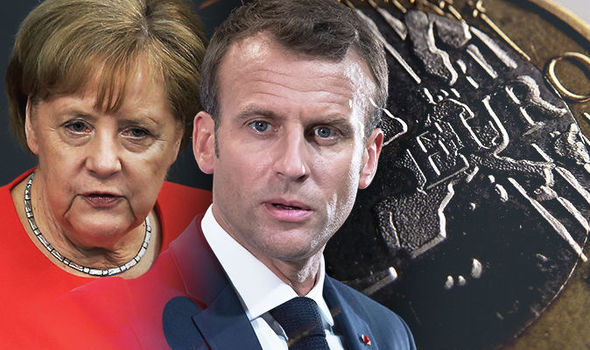It’s (not) the economy, stupid!
Migration crisis takes over Eurozone reform as number one priority

As I’m writing this piece, one of the most important summits in recent EU history is taking place. The importance is not given by the topics, which will be discussed, but rather by the mutated political situation in the Continent. The issues that have been swept under the rug are all coming back in the light now, and there are no more rugs. The immigration issue, even though the situation is not on the same scale as in 2015, has been brought to its final stand by the new Italian government, which refused to continue the policies of its predecessors in allowing NGOs to dock on Italian ports. This has sparked a debate, which was already lingering in Italy, about the effective solidarity of the rest of the EU outside of vague promises and speeches. Under the push of its Interior minister Matteo Salvini, the government adopted a tough stance and forced the hand of the EU in two cases: one ended with Spain accepting the burden and the last one with a more choral response (yet Merkel’s Germany is a notable absent). Angela Merkel said that the focus of the summit will be migration and that this very issue could decide the fate of the whole EU. More than that, she is betting her whole future as Chancellor on this, with consequences for her, for the German government and for Europe as a whole that are hard to predict.
Yet, this is not what I want to talk about today. What I found interesting as of late, is that the migration issue completely hijacked (and for good reasons) public and official debate in Europe and relegated an issue that was, up until now, the priority number one: the reform of the Eurozone. With president Emmanuel Macron finding hard to reach a compromise with Germany on the issue and having very little to show of these negotiations, it has become clear that, at least for the moment, we cannot expect any major change of pace on the issue.
This would be, in my opinion, a huge mistake. While the migration is indeed a very important issue, it has less structural ramifications than the Euro area concerns. Indian economist Ashoka Mody recently published a book called “EuroTragedy: A Drama in Nine Acts”, in which he points out how, in his opinion, the common currency was created with several fatal flaws that have had the effect of amplifying the economic differences between member states and, in particular, the south of Europe against the North. In his view, a country like Italy has suffered disproportionally high the consequences of the financial crisis both because of its structural problems but also because they couldn’t rely anymore on a sovereign central bank to pull through the crisis. He argues that the economies of the southern member states are too rich to compete with eastern and central Europe in terms of wages but are also not advanced enough to compete with northern Europe. Add to that the fact that Northern prices are being kept artificially low by the common currency thus hindering the export efficiency of the south and you have a recipe for a vicious cycle that has been plaguing the south and, more importantly, the whole EU for a decade now.
The fact that the crisis was handled with austerity measures and that the so-called “hawks” in the north are advocating for more stringent rules on debt making and public spending, has effectively created a chasm within the EU that has left a scar on the public. Even reversing the trend now (and subsequently causing a stir in the northern electorate) it will be too late and the past actions will not be forgotten by the Italian or Greek citizens. This trauma, this euroscepticism that has brewed for a decade, is all political and it will be hard to re-conquer a broken heart. To be clear, the structural problem of the countries are to blame for the economic situations in the south but, from the moment that the European leaders accepted the power of the common currency, they implicitly also accepted the responsibility of it all, even if they technically do not have the instruments to be as effective as a national central bank.
To conclude, I don’t have a solution, if I did I would be leading the summit at the moment. What is clear though, is that in the face of political and economic decline compared to the emerging Asian giants and with challenges that go beyond the internal squabbles of the EU, it’s time to be bold. But unfortunately, it’s the worst time to do so. The heavy reform needed will be unpopular everywhere on the continent, one way or the other. A new social and political pact is needed, one that will require sacrifices from everybody as an investment for future prosperity. Yet, for the moment, the Eurozone discussion is postponed and the closer we get to the next European elections the more unlikely it becomes.
